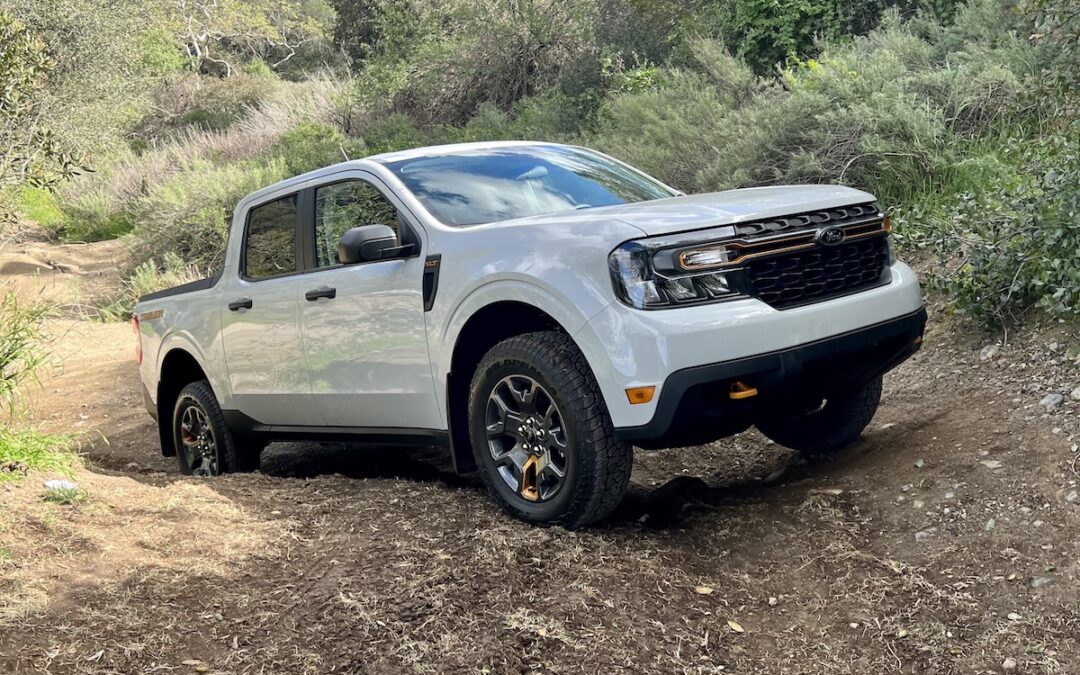Price (as tested) 💲: $32,510
Powertrain ⚙️: 2.0-liter Turbocharged 4-cylinder
Output 💪: 250 hp/277 lb-ft of torque
Transmission 🕹: 8-Speed Automatic
0-60 MPH 🚦: 6.1 seconds
Top Speed 💥: 109 mph
MPG (as tested) ⛽️: 20 city/24 hwy/21 combined
Curb weight ⚖️: 3,829 lbs
It’s easy to pick on the little guys.
Their smaller frame just can’t endure the same punishment, climb the same heights, or pull the same weight as those of stockier standing.
Yet there are distinct advantages to a compact physique. Whether used to maneuver in tighter environments, perform agile stunts, or provide a gentler touch, smaller dimensions can be a strong asset.
I am, of course, talking about pint-sized pickups like the Ford Maverick.
With its unibody architecture, the Maverick isn’t built to tow heavy loads (in fact this Tremor trim is limited to 2,000 lbs), to conquer immense obstacles (a solid structure doesn’t offer the articulation and flex of a body-on-frame truck), or to haul heaps of cargo (payload is capped at 1,200 lbs).
And yet, on road, the Ford Maverick Tremor can park just about anywhere, it offers car-like ride compliance and agility, its architecture facilitates a low floor for improved cabin volume, and its 250-hp turbo 4-cylinder scoots the Mav to 60 in around 6 seconds while delivering 21 combined mpg.
Off-road, the Ford Maverick Tremor slinks through overgrown brush-lined trails, its extra ground clearance and locking rear differential enable greater capability than one would expect, and that unibody platform distills what would be a punishing ride on washboard surfaces.
If duty doesn’t call for heavy trailering or a giant bed, don’t be swayed by stature: think small.

